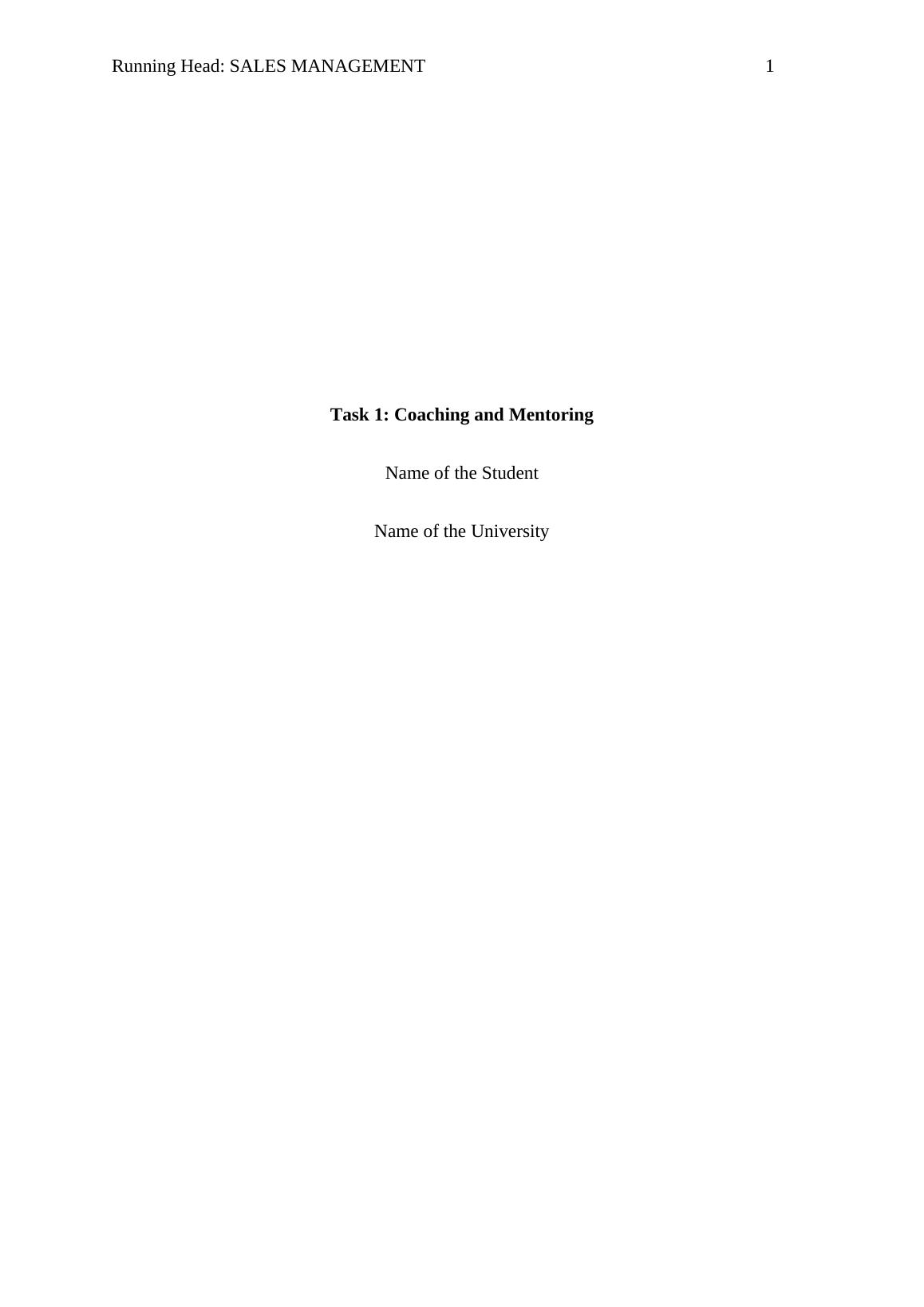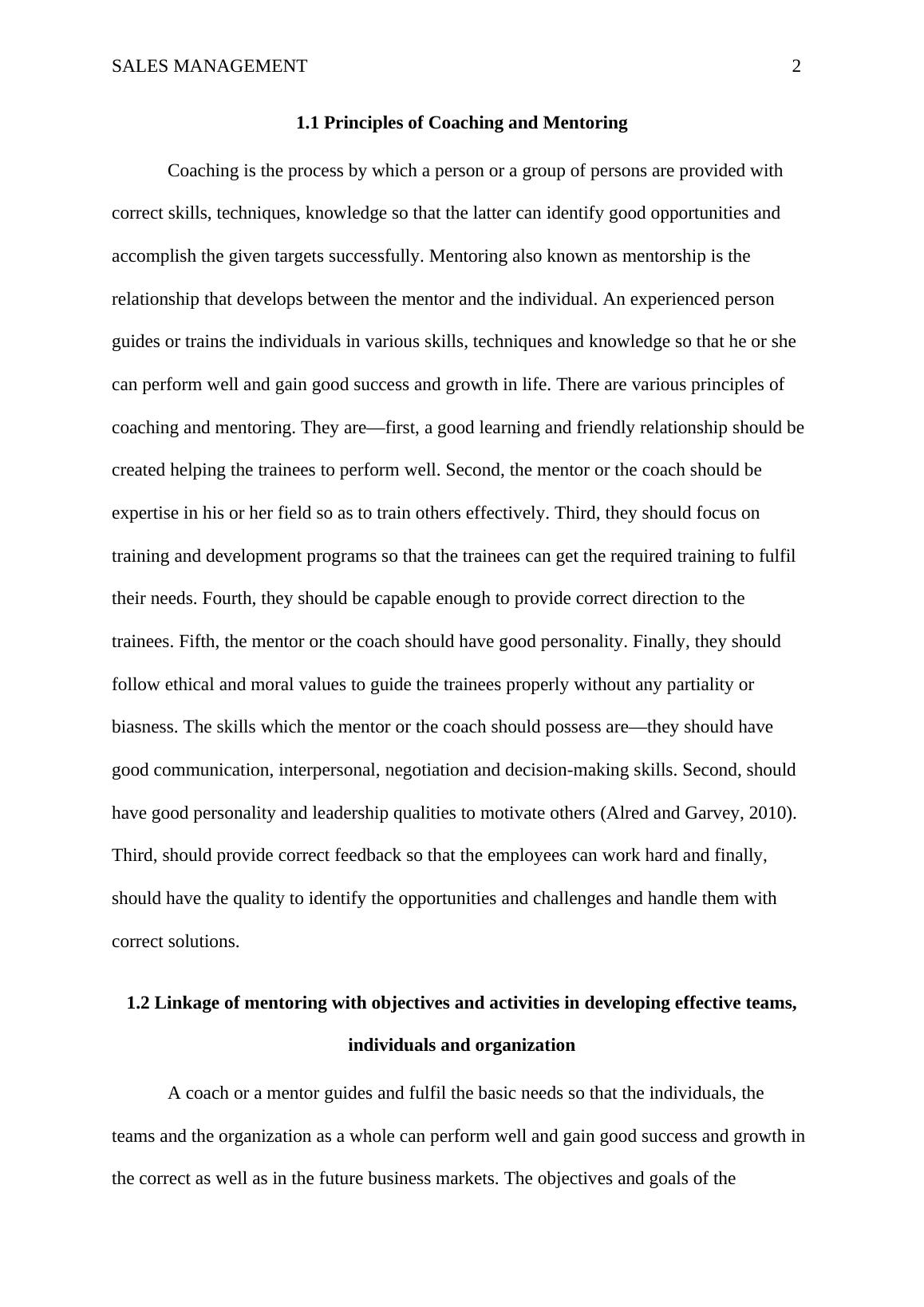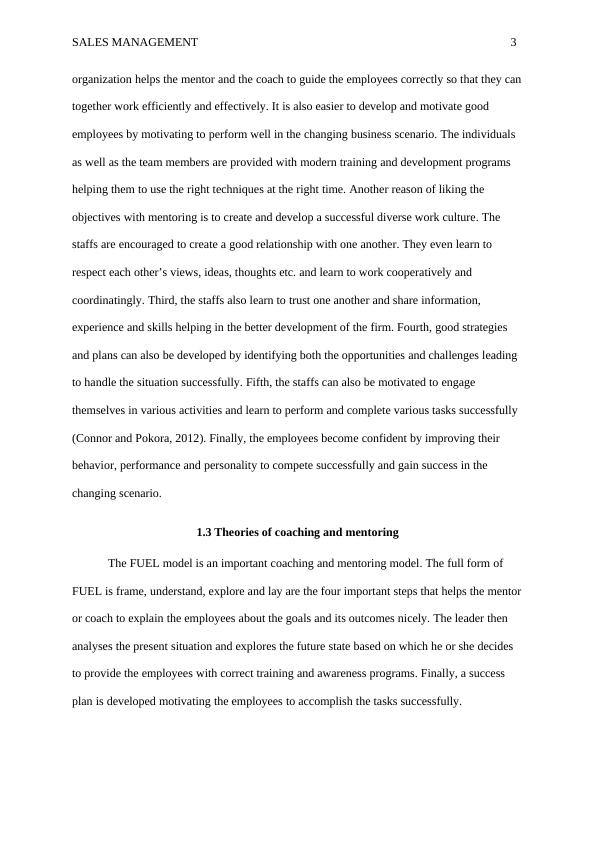Coaching and Mentoring: Principles, Linkage, Theories, Benefits, Processes, Boundaries, Communication and Success
10 Pages2566 Words180 Views
Added on 2019-09-23
About This Document
This article discusses the principles, linkage, theories, benefits, processes, boundaries, communication and success of coaching and mentoring. It also explains the importance of communication and ways to measure success after proper coaching and mentoring.
Coaching and Mentoring: Principles, Linkage, Theories, Benefits, Processes, Boundaries, Communication and Success
Added on 2019-09-23
ShareRelated Documents
End of preview
Want to access all the pages? Upload your documents or become a member.
Coaching and Mentoring: Principles, Theories, Benefits, and Processes
|9
|2324
|286
Coaching and Mentoring Program for Performance Needs
|10
|2761
|433
Coaching and Mentoring Program for Performance Needs
|7
|1560
|440
Working with Individual Learners (Doc)
|13
|2982
|353
Training, Learning And Development Strategies
|12
|2791
|349
Coaching and Mentoring Techniques for Staff Development - Desklib
|13
|725
|158



